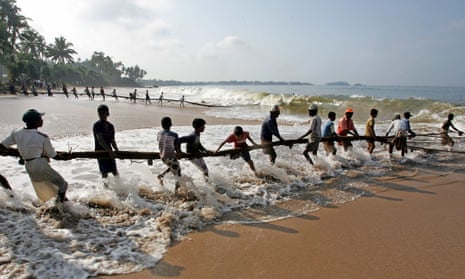Ethical travel charity Tourism Concern has closed down after almost 30 years after running out of funds to continue its campaign and research work.
The independent, non-profit organisation had battled for financial survival for many years, with annual reports describing how it had “always struggled to generate a core income.” . A statement by the charity released on 26 September, said: “Funding from charitable foundations, which sustained us in the past, is no longer available. The trustees were determined that Tourism Concern should not become a zombie charity, raising money simply to exist.”
It also thanked staff, members and supporters for their commitment and achievements, “of which perhaps the most significant has been to project the principles of responsible tourism into the mainstream conversation”. A “charity with similar objectives” has been nominated to receive outstanding funds.
Hopes of building a stronger network of individual supporters (known as Friends of Tourism Concern) alongside its membership programme had not materialised, and grants had decreased in recent years. Subscriptions from membership never generated more than around £30,000 a year (with total unrestricted income averaging around £75,000 a year).
After being founded in London in 1988, Tourism Concern became a charitable membership organisation in 1989, describing itself as a small network of global development activists and academics aiming to challenge the exploitation of people and places by the global tourism industry. Its first major report was released in 1992, which detailed principles for sustainable tourism development.
Awareness campaigns and research covered a diverse range of issues, including human rights, worker exploitation, “voluntourism”, the orphanage industry, slum tourism, the impact of all-inclusive trips and cruise ships, animal tourism and environmental issues. Recently the charity outlined codes of conduct relating to indigenous tourism, including in the Amazon and Africa, and the sustainability and impact of Airbnb in ‘honeypot cities’, particularly across Europe. It believed that locals should participate in decision-making about tourism development where they lived, and see an increase in jobs and sustainable growth.
Although there are various other organisations offering advice – including the United Nation’s World Tourism Organisation, which has a code of ethics for responsible tourism, along with other paid-for responsible travel consultancies – members and ethical tour operators see the closure of the charity as a major blow.
Rickshaw Travel’s Hannah Hesford said: “It’s a great loss to the industry. Tourism Concern did a lot of amazing academic and scientific research and analysis; highlighting many important issues, long before they went mainstream. Currently, we don’t know of [another] charity that operates in the same way they did.”
Nabeena Mali, from ethical travel startup (and member company) Soulscape, added: “Most companies would charge you a premium for outreach but they just wanted to support ethical travel projects. It’s a really tough industry because we’re fighting against either the luxury hotel resorts or the less expensive all-inclusive mass tour experiences.”
Responsible Travel’s customer director, Tim Williamson, agreed: “Tourism Concern has played a fundamental role in championing the rights of local people. It’s now crucial that the industry listens to communities, making sure their voices are heard and that tourism develops in partnership with people in destinations.”
Former Tourism Concern executive director Mark Watson said: “Tourism Concern pushed the industry to improve their operations and helping tourists make better and more informed choices about their holidays. I hope much of the research, built up over nearly 30 years, will still be publicly available.”
